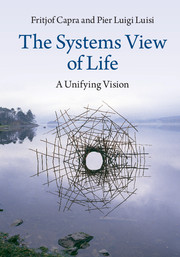Book: 'The Systems View of Life - A Unifying Vision' [i]
 |
| The Systems View of Life - A Unifying Vision |
Come on petro-states it's time to really deliver.
'The basic tension is one between the parts and the whole. The emphasis on the parts has been called mechanistic, reductionist, or atomistic; the emphasis on the whole, holistic, organismic, or ecological. In twentieth-century science, the holistic perspective has become known as "systemic" and the way of thinking it implies as "systems thinking,'' as we have mentioned.
In biology, the tension between mechanism and holism has been a recurring theme throughout its history. At the dawn of Western philosophy and science, the Pythagoreans distinguished "number," or pattern, from substance, or matter, viewing it as something which limits matter and gives it shape. The argument was: do you ask what it is made of - earth, fire, water, etc. - or do you ask what its pattern is?' p.4.
- Preface
- Acknowledgements
- Introduction: paradigms in science and society
- Part I. The Mechanistic World View:
- 1. The Newtonian world-machine
- 2. The mechanistic view of life
- 3. Mechanistic social thought
- Part II. The Rise of Systems Thinking:
- 4. From the parts to the whole
- 5. Classical systems theories
- 6. Complexity theory
- Part III. A New Conception of Life:
- 7. What is life?
- 8. Order and complexity in the living world
- 9. Darwin and biological evolution
- 10. The quest for the origin of life on Earth
- 11. The human adventure
- 12. Mind and consciousness
- 13. Science and spirituality
- 14. Life, mind, and society
- 15. The systems view of health
- Part IV. Sustaining the Web of Life:
- 16. The ecological dimension of life
- 17. Connecting the dots: systems thinking and the state of the world
- 18. Systemic solutions
- Bibliography
- Index
Fritjof Capra and Pier Luigi Luisi (2014) The Systems View of Life - A Unifying Vision. Cambridge: Cambridge University Press.
https://www.cambridge.org/gb/universitypress/subjects/life-sciences/genomics-bioinformatics-and-systems-biology/systems-view-life-unifying-vision?format=HB&isbn=9781107011366



 orcid.org/0000-0002-0192-8965
orcid.org/0000-0002-0192-8965

